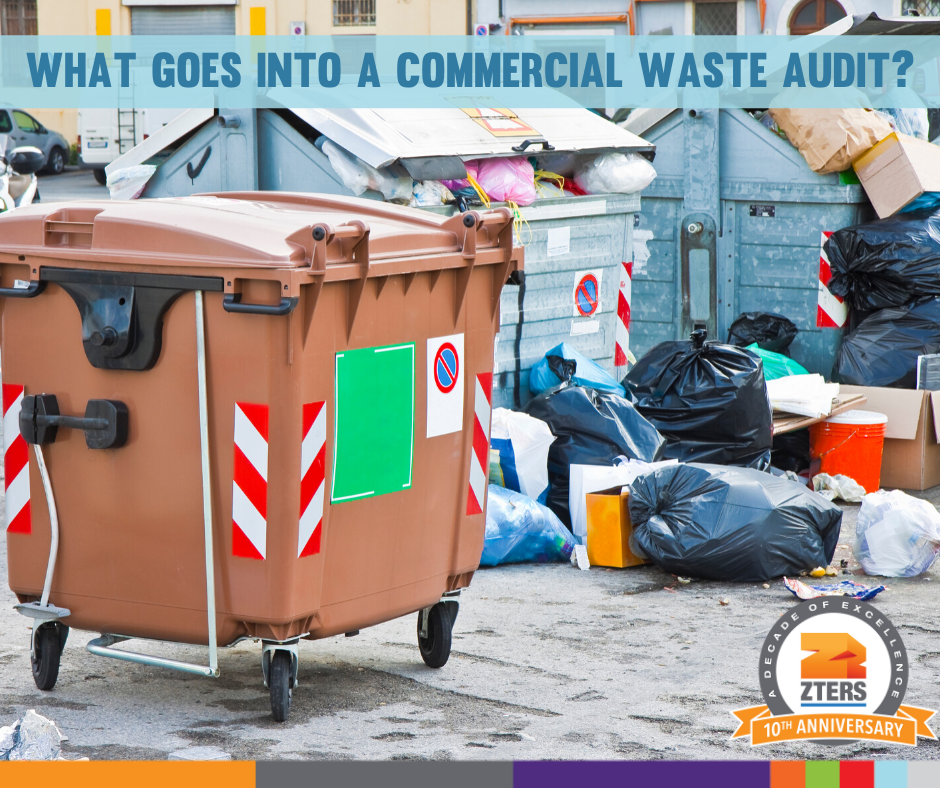How to Conduct a Commercial Waste Audit
POSTED ON January 23, 2020 | BY Dan Studer
Property owners and facility managers know all about waste. From new waste reduction legislation to changes in the recycling industry, it’s important to measure a building’s waste output on a regular basis. Conduct a commercial waste audit to “right-size” a building’s waste service and make service contracts more efficient and effective.
These waste audit tips are taken from “Right-sizing Commercial Waste Solutions” by Dan Studer. Dan is the division manager for the ZTERS commercial waste division.
Why is a commercial waste audit important?
The Frontier Group, a policy research organization, estimates people throw away seven pounds of materials—per person—each day in the United States. Now multiply that by the number of residents or occupants in a building. That adds up to a huge amount of garbage.
Add to that the rising cost of recycling and new waste-related legislation. Property owners and facility managers have to keep close tabs on waste. Otherwise they’re paying overage fees, or worse, penalties for not disposing of waste properly.
How to conduct a commercial waste audit?
A waste audit, or waste assessment, establishes a baseline for future waste reduction efforts. Here’s a three-step method for conducting a basic waste audit:
- Examine waste records. Review waste hauling and disposal invoices, recycling contracts, supply invoices, and operating and maintenance logs. Identify costs associated with each phase of collecting and removing waste.
- Walk through the facility. Observe where waste is generated and where it ends up. Talk with members of each department to find out what type of waste is produced and where it ends up.
- Conduct a waste sort. Physically collect and weigh a day’s worth of waste. Decide how to quantify the waste. For example, is it paper, plastic, metal, or organic material? Determine which materials can be exchanged, sold, reused, or recycled.
Bottom-line benefits of a waste audit
Waste audits aren’t just useful for gauging and managing a building’s waste stream. It also helps property owners and facility managers determine how to improve recycling and reuse efforts. It identifies areas of overall system improvement. And it can provide data to help renegotiate waste contracts or evaluate new waste solutions.
ZTERS Commercial Waste Division helps commercial property owners and facility managers evaluate their waste streams and find the right solution to meet any budget. We work with properties nationwide to provide custom waste solutions, one point of contact (no matter how many facilities you own or manage) and streamlined invoicing with one account manager.
Streamline your waste service with ZTERS. We’re your one-stop partner in commercial waste services. Give us a call to find out more.
